Road Bike Vs. Mountain Bike
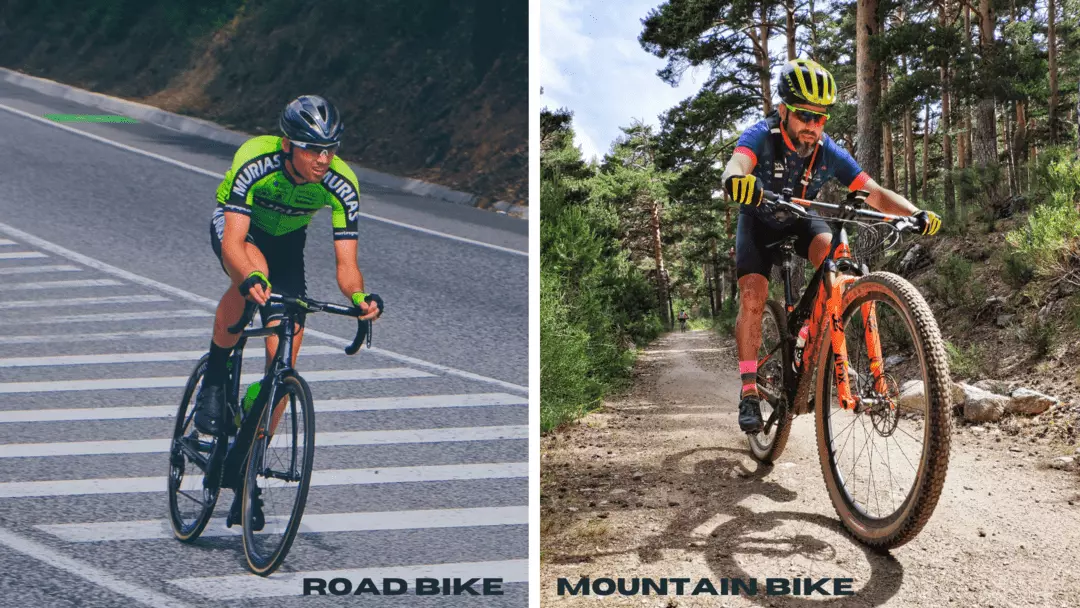
Cycling has been gaining popularity again for quite some time.
It’s a great way to save some money on gas (and time stuck in traffic) for city commutes. It’s also a great way to exercise and explore in your free time.
Breakthroughs in technology have made them much more efficient and comfortable while simultaneously making them much more affordable when it comes to cost-to-benefit ratios. This makes it a great time to buy a cycle!
The dilemma most people face when purchasing a bike is the type of bike to buy, for example, road bike vs. mountain bike!
Avid cyclists generally have a different bike for each different style of cycling that they will be doing, but hobbyists and recreationists can’t really afford to do that.
If you can only get one bike, what should it be?
Unfortunately, there isn’t a right answer to that question.
Everyone is different, and so are their needs. Most casual cyclists will want to purchase either a road bike or a mountain bike, but once you have the options narrowed down this far, it’s a matter of purpose and preference.
In this article, we can help you determine whether a road bike or a mountain bike is the better choice for your needs. We will take a look at some of the factors and circumstances that can help you to determine which choice would be more prudent.
By the end, you will be familiar with the questions to ask yourself before purchasing a bike and the type of things you can do with each bike.
Road bike vs. mountain bike?
Here is a fun video that debates which one is harder:
How do I know what type of bicycle to choose?
Before you can compare the 2 different types of bikes, you need to be aware of your own cycling style. After all, knowing what you intend to use your bike for is one of the most important pieces of information to help you make your choice.
First, you should ask yourself how you will be using the bike.
Are you hoping to get some exercise without the shock to your joints than running provides?
Do you want to cruise and explore some of the trails nearby, or take it through some mountains?
Are you trying to cut down on time in traffic, so you want to use a bike to get around the city and replace your car for short-distance commuting? Do you hope to do more than one of these things with your bike?
Knowing your primary use will point you in the right direction. If you plan to stick to roads, then you may not need a mountain bike. Road bikes are great commuter bikes that can go pretty quickly and cover a lot of ground.
If you plan to use your bike for exploration as well as exercise and commuting, though, you will need the more versatile mountain bike.
Road bikes are optimized for pavement, so you can’t use them in the mountains. Their tires are very narrow and thin, so a single pebble or stick will send you flying head over heels.
It’s dangerous to use them on unknown or uneven terrain.
On the other hand, mountain bikes are not optimized for riding on the road, but they are capable of doing so as long as you put the extra effort into making them go.
They’re not as fast on the road, and they’re not as efficient, but unlike road bikes, which can’t take mountain paths at all, these bikes won’t put you in danger if you do ride them on the road… They just get a lot harder to handle and a lot less comfortable.
Now that you’ve (hopefully) determined how you’ll be using your bike, let’s take a look at these 2 bikes in more detail.
This will give you a better idea of all the things you can do with them.
Other Things to Consider:
Here are a few more questions to get you started:
● Do you plan to ride with friends, and if so what type of bikes do they have?
● What’s your budget?
● What matters more to you – efficiency, comfort, speed…?
Road Bikes

Road bikes (occasionally known as racing bikes) are designed for speed.
These are great options for commuters because the narrow tires can roll very quickly along paved surfaces as long as there aren’t any obstacles in the way. They are becoming very popular and being made with disc brakes.
These bikes have a few different types. Aero bikes are designed to minimize the drag you experience during a ride.
These are professional racing bikes that are more concerned with speed than comfort or other features. Ultralight bikes are designed for climbing uphill. They’re extremely lightweight but they’re not very versatile.
Endurance bikes are built more for touring racing. These are designed for riders who plan to travel longer distances per ride, with a focus on comfort over speed and climbing.
Quick Pros and Cons:
Let’s take a look at some of the advantages of these bikes:
- Designed for speed – very light and easy to maneuver
- Posture puts your torso over the handlebar for lots of power
- The riding position is ideal for maximizing your leg speed and power
- Components are very easy to maintain
- Light frame and thin tires minimize friction
- Lots of choices based on your budget from under $1,000 to nicer ones under $2,000
Unfortunately, these bikes:
- Are nowhere near as durable as mountain bikes
- Can’t be used on any unpaved terrain
- Are difficult to ride slowly because of the high fear range
- Can put a lot of stress on your wrists and neck
Advantages of Road Biking
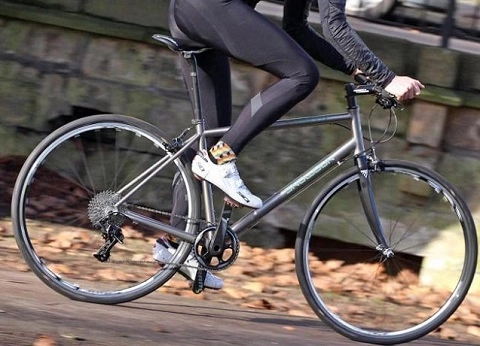
There are a few great reasons to buy a road bike. Let’s look at what makes them so popular. First, they’re far more accessible.
For most riders, you won’t have a ton of great trails or mountain ranges close by. To get a good cycle ride in, you’re going to be on roads and pavement. The road bike allows you to go cycle without having to commute to a trial.
It’s also a great way to exercise. Road biking is very fast, and as a result, you get a good deal of cardio in every ride. The cyclical motion prevents your joints from taking heavy pounding the way they do when jogging or running but doesn’t reduce the workout you’ll get.
You can target certain heart zones and vary your pace and intensity much easier with road cycling than with mountain bikes.
They’re also much easier to take care of. It is critical to constantly maintain your bike if you want to extend the lifetime of your tires and bike frame. With road bikes, you need to get an occasional tune-up and check the tire pressure.
Tires will need to be replaced after enough time has aged them out of use, but you can often go nearly 3,000 miles on a good pair of racing tires if you don’t come across any rough terrain, rocks, or other obstacles that will rip them apart.
Mountain bikes, on the other hand, have tons of dirt and grit.
Sure, they can trek through mountains and handle grime and mud, but then you have to clean the bike frame and tires after every single ride.
Finally, it’s also more affordable most of the time. You can find great road bikes for very affordable pricing.
Sure, the more expensive ones will be lighter and have much nicer tires and smoother handling, but if you’re just looking for a commuter bike or an exercise and leisure bike, you won’t need to fork over tons of cash to get a great bike.
Mountain Bikes

These bikes are much more versatile and durable than road bikes. They’re made for handling dirt trails and different terrains.
These bikes have wider handlebars and usually come with forks that will absorb the shocks you take. They can handle pebbles and twigs and little bumps in the path without sending you flying.
These usually have wide tires and a lot of treads, so you will have traction when riding. They also include hydraulic disc braking and drivetrains that can handle steeper climbs and descents.
Hardtail bikes come with a rigid frame and suspension forks. These are the most common and most affordable ones.
They also make XC full-suspension mountain bikes. These are for people who are not riding as far. The rear suspension on these bikes keeps the frame light so you can get extra efficiency when powering up climbs.
The trail full suspension bikes are for riding longer distances because they balance efficient climbing with going downhill. These have wide tires and plenty of stopping power on the brakes. Finally, full suspensions put a lot of power in the rear wheel.
These can go for very long rides without causing exhaustion. They’re designed to be very balanced and handle any terrain for long rides.
Mountain bikes are very versatile. They can be used to ride just about anywhere – including roads. Some people like using them for unpaved roads. Others like using them to power up steeper hills without the same level of effort road bikes require.
As a rule of thumb, the harder the trail is the more rear suspension you will want on your bike. Additionally, it’s recommended to have additional equipment if you’re mountain biking such as:
Quick Pros and Cons:

Let’s take a look at some of the advantages of this bike:
● Extremely durable frames can take a lot of abuse
● Offer tons of traction so climbing is easy – even on steep uphill climbs
● Wheels can handle potholes and rocks
● Easier to control thanks to the extra suspension
● Much more comfortable to ride
Unfortunately, these bikes:
● Are much heavier than road bikes, making uphill climbing difficult at times
● Have much more rolling resistance
● Work like snow tires on pavement, increasing the amount of work they must do to travel at speed
● Are less efficient thanks to the suspension stealing pedal stroke power
● Can’t move as quickly
● Require much more effort to ride on paved roads
Advantages of Mountain Biking

There are also some advantages to mountain bikes. The first one is its versatility. Unlike road bikes, which can’t function in the mountains, you can use a mountain bike to ride on paved trails. It’s not ideal, and you’ll work pretty hard, but it is possible.
Another reason to think about mountain biking over road biking is that there won’t be any cars. If you’re in an area that has great trails but also has crazy drivers, and a lack of bike lanes, you may prefer the safety of biking in areas where you’re not worried about crossing traffic.
Mountain biking can also be much better for your health.
Not only are you eliminating the CO2 that comes through a car’s exhaust and the smog of the city, but you’re often getting a muscle-toning workout along with your cardio because of the way the gears work on these bikes.
Cycling on the road works your cardio only because you’re spinning quickly for long periods of time. Mountain biking moves from rapid bursts of speed to sustained slower cardio, and the climbing and differences in terrain also activate more muscle groups.
The culture with mountain bikes is different, too. You can link into a community of road cyclists, and there will likely be a lot of very friendly and welcoming people, but many road cyclists are all about speed or intense cardio workouts.
Mountain bikers tend to be a lot more laid back, casual, and open to exploration. There’s a lot less competition, too! Mountain bikers tend to be about having fun with friends rather than racing each other.
The versatility of the bike also means you can choose from a lot of different styles of riding. Road bikes are only designed to run through the pavement. That’s all they can do. Whether you’re climbing, racing, or touring… you must do it where there are roads.
With mountain biking, you can ride cross country, you can run trails or open spaces, can handle whatever terrain you choose to explore. There’s no limit.
Crashing hurts less. No matter where you fall, it’s never fun. That being said… Road cyclists are usually traveling around 25 to 40 miles per hour on the pavement.
Mountain bikers are usually traveling no more than 25 miles per hour on softer dirt trails.
Where would you rather fall from?
Lower speeds on softer ground, or at breakneck speed on the hard pavement?
Road Bike vs. Mountain Bike Buying Guide: The FAQs
Can a mountain bike be used as a road bike?
Though the best mountain bikes are designed for rough trails, you can use them on the road if you choose to. The only difference is that mountain bikes may not perform the best on the road. Interestingly, the answer is yes. However, you should put your personal use cases in mind before committing to buy a bike online or offline.
Is a full suspension mountain bike worth it?
Mountain biking can be fun if you get used to it. For you to enjoy the experience to the fullest, consider getting an affordable full-suspension mountain bike. When you want greater comfort and you want to ride faster for a longer time, this type of bike might be your best option, especially if you have your sight set on a mountain trial.
What are the best mountain bike brands in the market?
1. Huffy
2. Ally
3. VAYAGER
4. Mangoose
5. EUROBIKE
6. Shwinn
7. Five Ten
8. Royal Baby
9. Rock Bro
10. ROYCE Union
How much is the price of a mountain bike?
Depending on the brand and model, you can find some of the best mountain bikes selling between $400 and $200. Within this price range, you are sure of finding an affordable mountain bike that will suit your budget and other preferences.
Can you ride long distances on a road bike?
Within a city, you can ride long distances on a road bike. You just need to set your foot in the right riding position. But if you have off-city road touring in mind, your best bet is to go for a mountain bike. The important thing is to have strong tires and the right handlebar.
Conclusion: road bike vs. mountain bike
As you can see, there are advantages and disadvantages to both styles of biking.
They are designed for very different and specific purposes, and neither is optimized for the other’s domain.
The best way to determine which is best for your needs is by deciding what you will be using the bike for and where you will be riding it. Happy cycling!

Steve Beck is a passionate cyclist and experienced writer covering the cycling industry for over a decade. He has a wealth of knowledge and expertise in all bike-related things, from the latest products and technologies to the best routes and trails. His articles are well-researched, informative, and engaging, and he has a talent for explaining complex cycling concepts in a way that is easy to understand. Steve can be found on the road when he’s not writing about bikes, putting his knowledge and skills to the test.



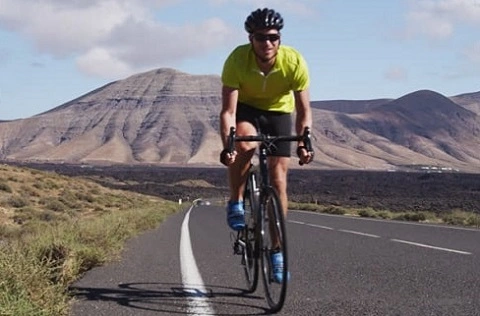
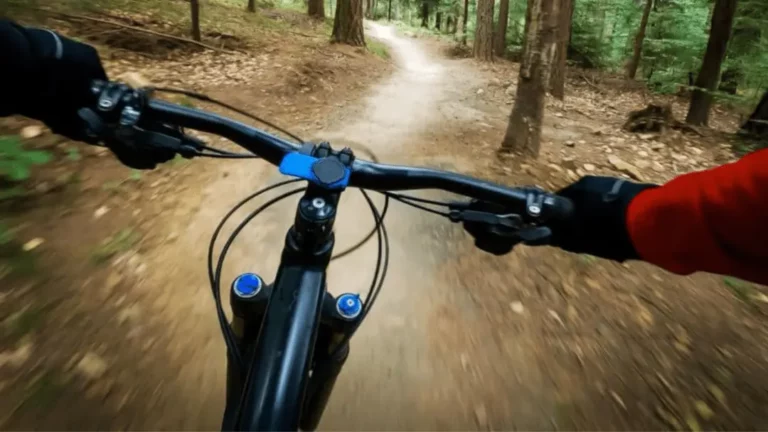

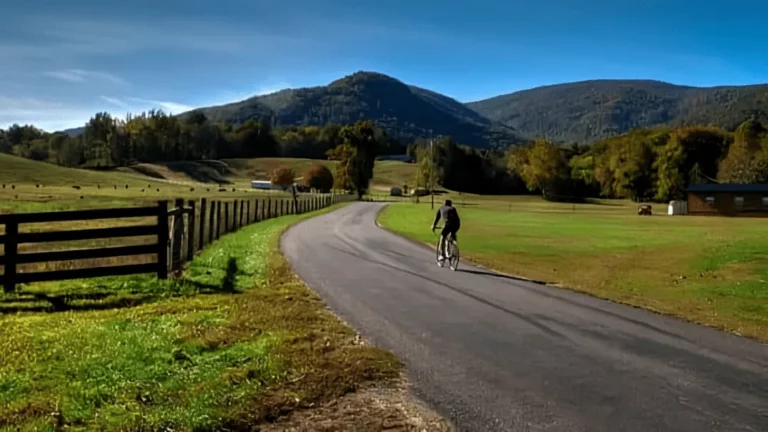
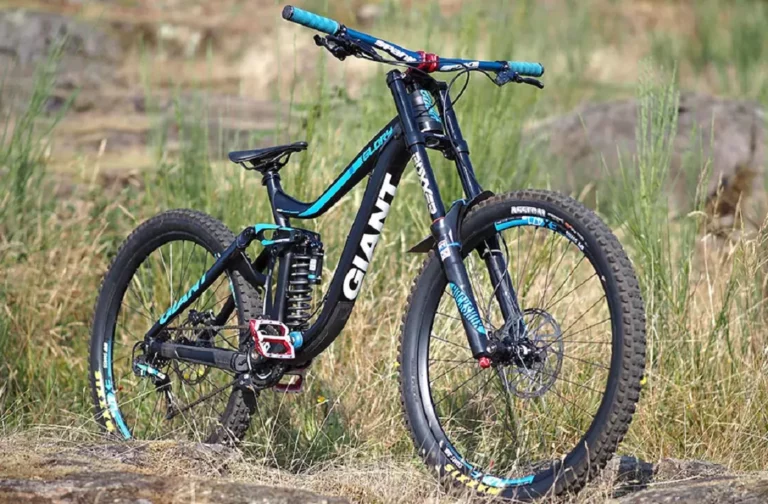


Very informative article. What if I buy both bikes to differentiate the user experience in real life.
I don’t plan on riding my bike on any dirt roads or anything. I figured I would need a road bike but my cousin told me to get a dirt bike. Honestly, I trust you more than him so I’ll play it safe and get a road bike.
It’s good to know that traction is one of the advantages of mountain bikes over road bikes. Since I live in a rural area, there are a lot of places near where I live that can be used as bike routes. Since most of them are covered in dirt, it would be better if I buy a mountain bike to traverse them.